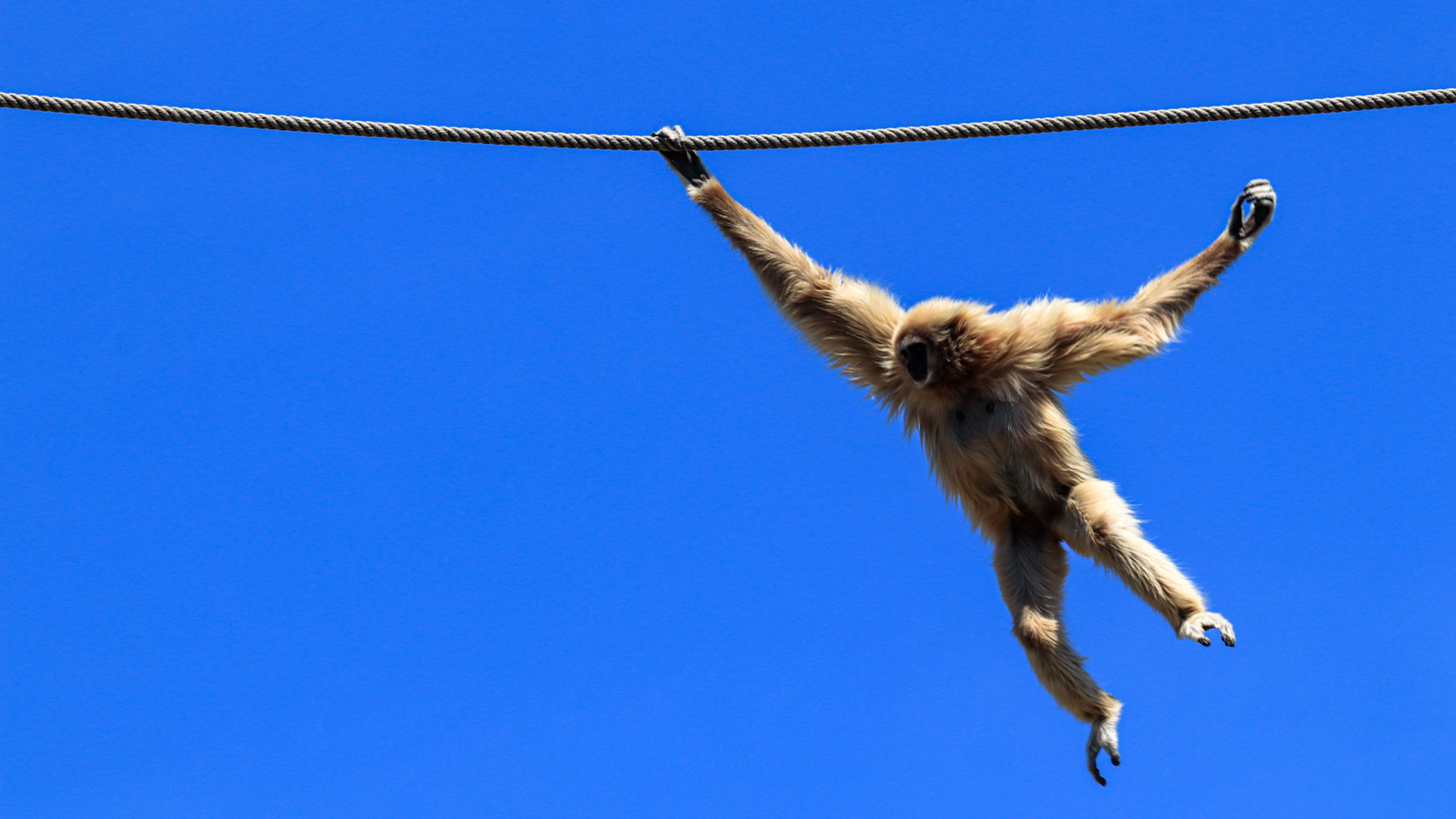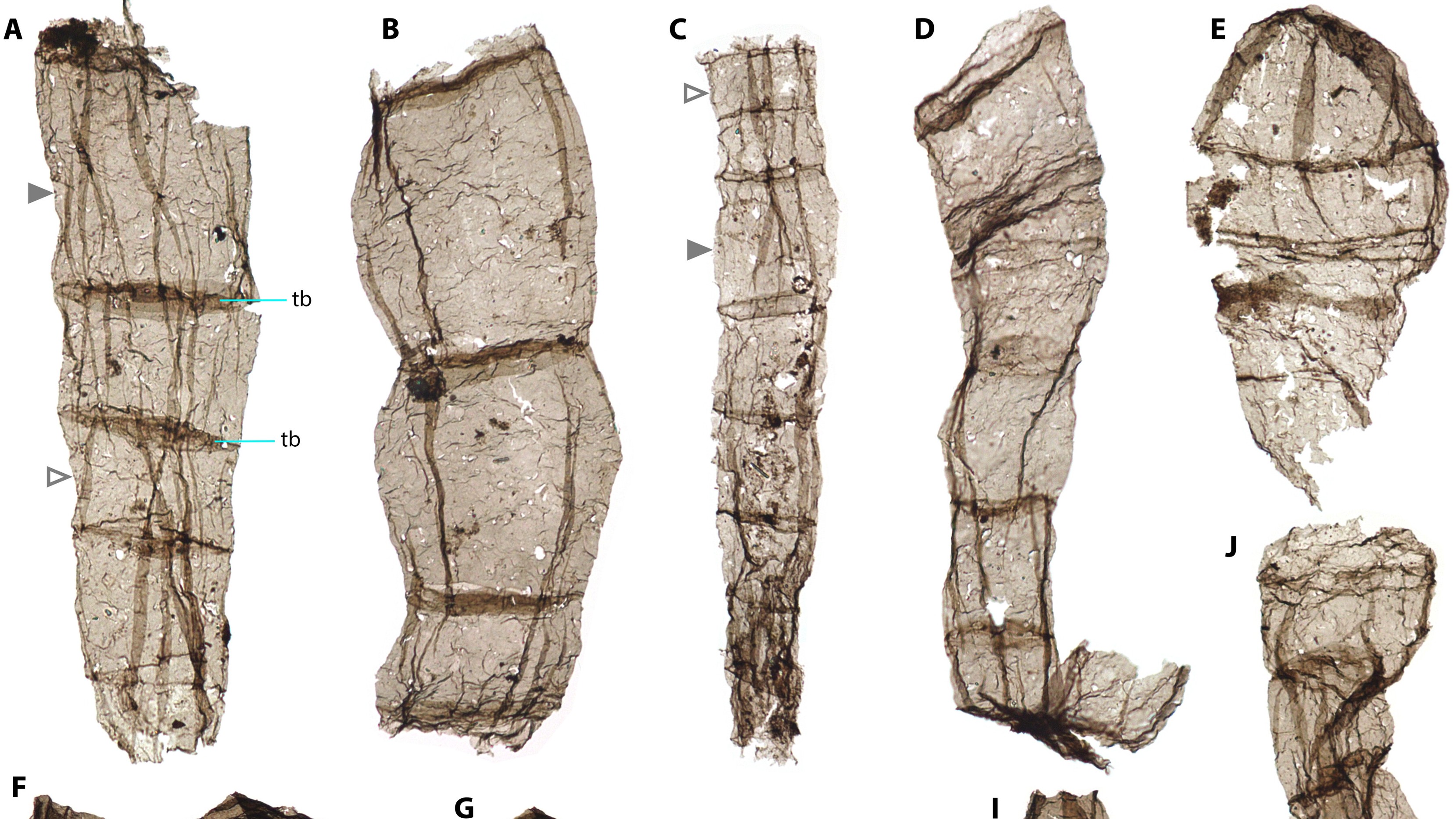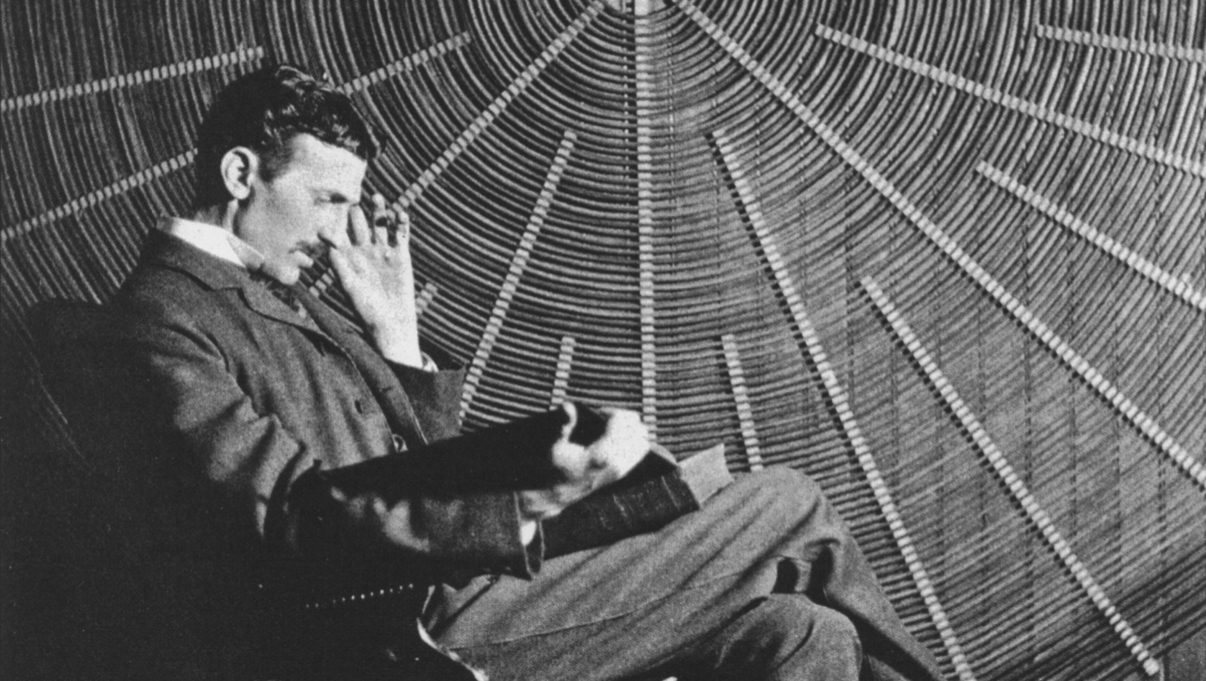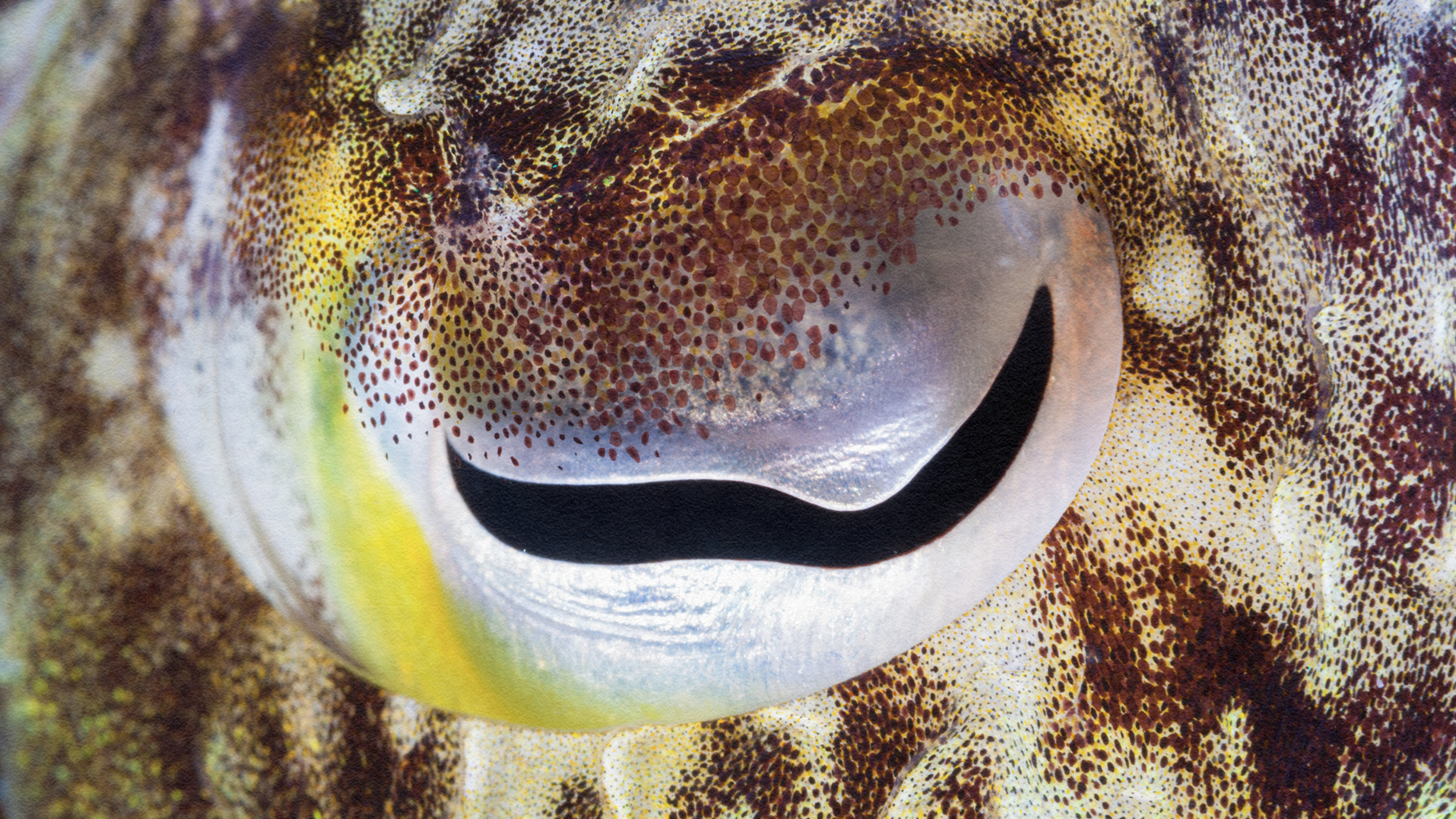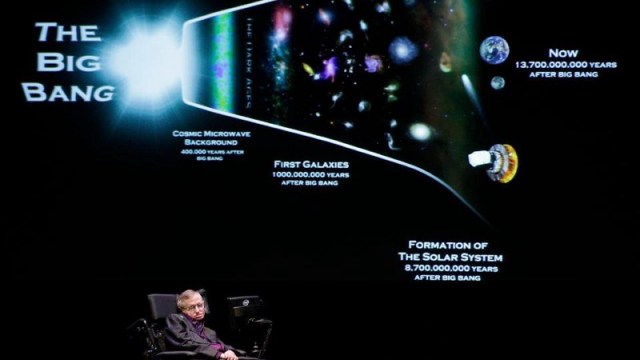Animal altruism: nature isn’t as cruel as the Discovery Channel says
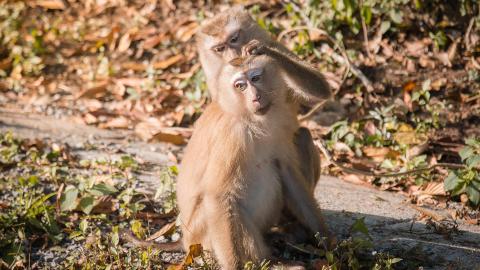
Image by <a href="https://pixabay.com/users/3887894-3887894/?utm_source=link-attribution&utm_medium=referral&utm_campaign=image&utm_content=3200366">นายพิพัฒน์ศักดิ์ ไชยวงษ์</a> from <a href="https://pixabay.com/?utm_source=link-attribution&utm_medium=referral&utm_campaign=image&utm_content=3200366">Pixabay</a>
- Primates practice altruism all the time and demonstrate a basic morality.
- These actions appear to be unmotivated by a hidden desire for self-interest.
- Indeed, altruism is necessary for the survival of social animals.
It is rather common to think of nature as an endless competition between animals for survival. Idioms like “survival of the fittest” or “it’s a jungle out there” remind us that the state of nature is one of cutthroat competition where the altruistic are doomed and the heartless win.
But is it? What if nature isn’t quite as cruel as we imagine it to be? In a recent interview with Big Think, primatologist Dr. Frans de Waal discusses animal morality, their capacity for altruism, and how our evolutionary history matters to us today.
Dr. Frans de Waal on animal altruism
Dr. Franciscus Bernardus Maria “Frans” de Waal is a Dutch primatologist who has spent his life studying the social behavior of primates. His work has shed light on our closest evolutionary cousins and their cognitive abilities.
It is through his work that the gentler side of our evolutionary relatives has become known. He has long maintained that empathy and altruism are common features of all apes, humans included, and that endless examples of animal altruism can be found by observation.
In an example he provides in a recent interview with BigThink, he describes the ability of primates to work together for the good of all group members:
“The primates are a very cooperative society in general. The reason they live in groups is that on their own they cannot survive. So they have to have companions from whom they get support, with whom they live together, who help them find food, who warn them against predators. And they have long-term friendships in their society just like humans have. There’s a lot of studies on how animals do favors for each other. And if you think about how this works it has to be based on gratitude. Like you do something for me, and I do something back to you. There must be some sort of emotional mechanism in there.”
Dr. de Waal has argued that these behaviors are based on genuine empathy, altruism, and the placing of value on interpersonal relationships by these animals. While his proposals earned more than a few objections early in his career, many researchers have come around to his ways of thinking and largely agree with the idea that the great apes do have these capacities.
Animal morality or just delayed self-interest?
It is easy to suppose that these cases are just egoism in disguise. Perhaps these seeming cases of altruism are really just animals playing the long game. Perhaps they help each other now only in expectation of favors in the near future.
However, it is important to remember that the notion of psychological egoism — the idea that all actions are always self-interested even if they appear not to be — is a controversial notion often criticized for being unfalsifiable, contrary to most people’s experience, and likely an ineffective tool forevolution.
Dr. de Waal also points out that it becomes increasingly difficult to apply the notions of egoism to primate behavior when you see more and more of it. One such example he gives is the increasing number of known cases of chimp adoption:
“…in Tai forest, in Ivory Coast, there is a documentation of 10 cases of adoption by males, adult males, who have adopted an orphaned chimpanzee. So the chimpanzee loses its mother, chimpanzees are dependent on their mother for at least eight years of their life. So if you lose your mother at three years of age, you may be able to survive on solid food, but you still need to be carried and protected. And someone needs to explain to you what to eat and what not to eat. And adult males are willing to do that. And so they spend an enormous amount of time and energy into individuals that they don’t get much back from. And I find that very interesting cases, these cases of altruism that don’t fit any evolutionary scenario but nevertheless occurred.”
If the chimps are only doing this out of self-interest, exactly what that interest is goes beyond what a leading primatologist can imagine.
Does morality come from within us?
What, then, can be said of animal morality? Like many of our primate and mammalian relatives, we have evolved a sense of moral understanding, with the capacity for altruism and a focus on reciprocity being part of this complex phenomenon. Interestingly, though acts of altruism have been documented in other animals, it is notable that humans are far more altruistic than any other species.
Understanding our evolutionary history, therefore, may allow us to better grasp how we forge moral codes in our societies. As Dr. de Waal put it in a previous interview with Big Think:
“Our current religions are just 2,000 or 3,000 years old, which is very young. And our species is much older and I cannot imagine that, for example, a hundred thousand years or two hundred thousand years our ancestors did not have some type of morality. Of course they had rules about how you should behave, what is fair, what is unfair, caring for others — all of these tendencies were in place already so they had a moral system and then at some point we developed these present day religions which I think were sort of tacked on to the morality that we had. And maybe they served to codify them or to enforce them or to steer morality in a particular direction that we prefer.
So religion comes in for me secondarily. I’m struggling with whether we need religion. So personally I think we can be moral without religion because we probably had morality long before the current religions came along.”
Dr. de Waal has suggested in several of his books that our morality comes from within us, driven by our primate tendencies rather than externally as with religion. Luckily, Dr. de Waal’s research suggests that the morality of our evolutionary relatives include elements of “fairness, empathy, caring for others, helping others, following rules, [and] punishing individuals who don’t follow the rules.”
If he is right, then perhaps we all could use a little more animal morality in our lives.
